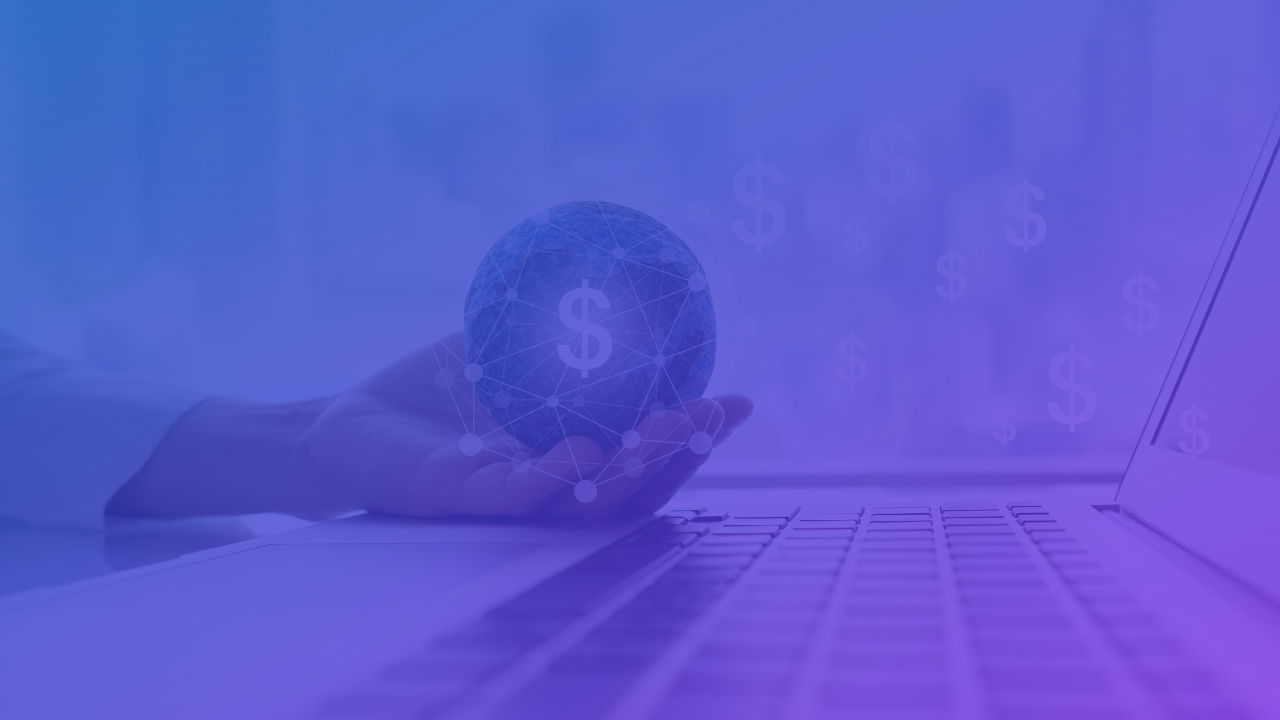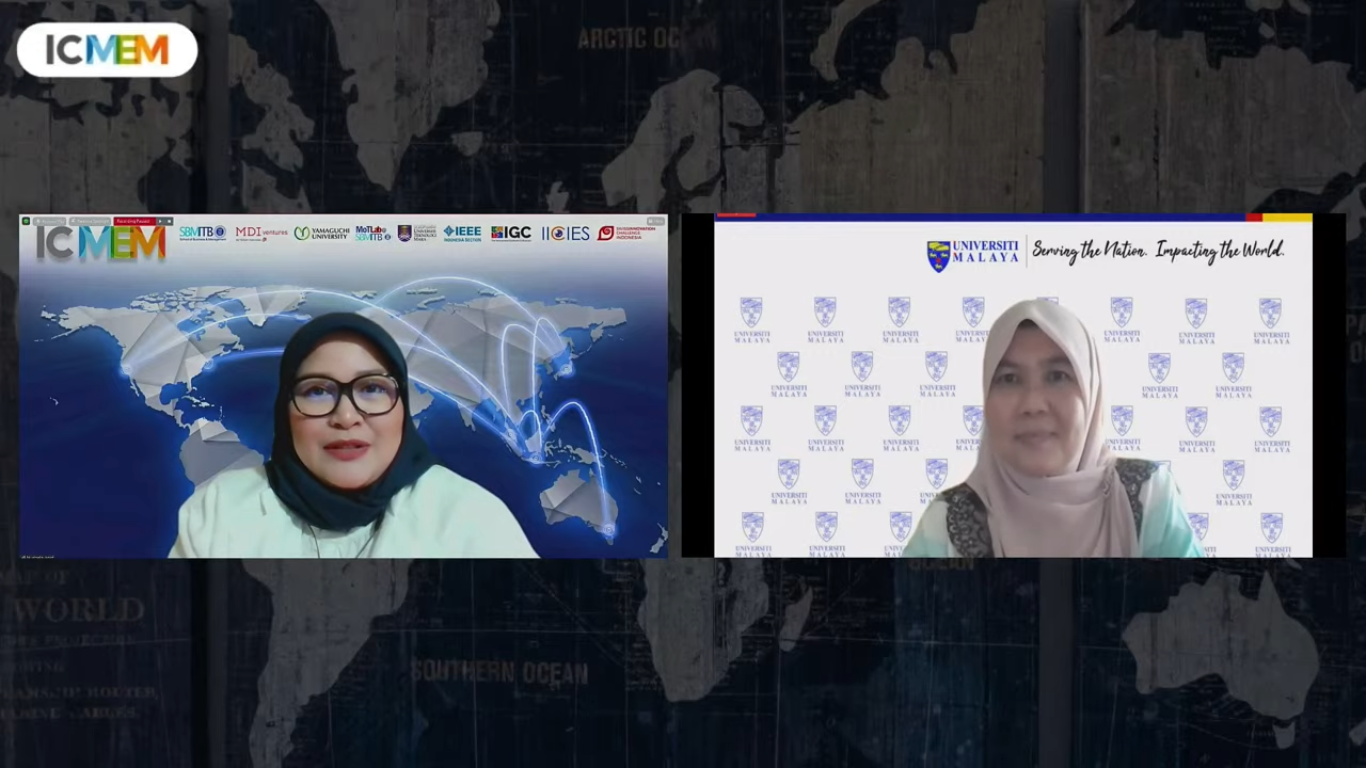Post-COVID-19, the business landscape will not be the same as before. Companies need to utilise digital technology to adapt to post-COVID-19 circumstances toward sustainable business.
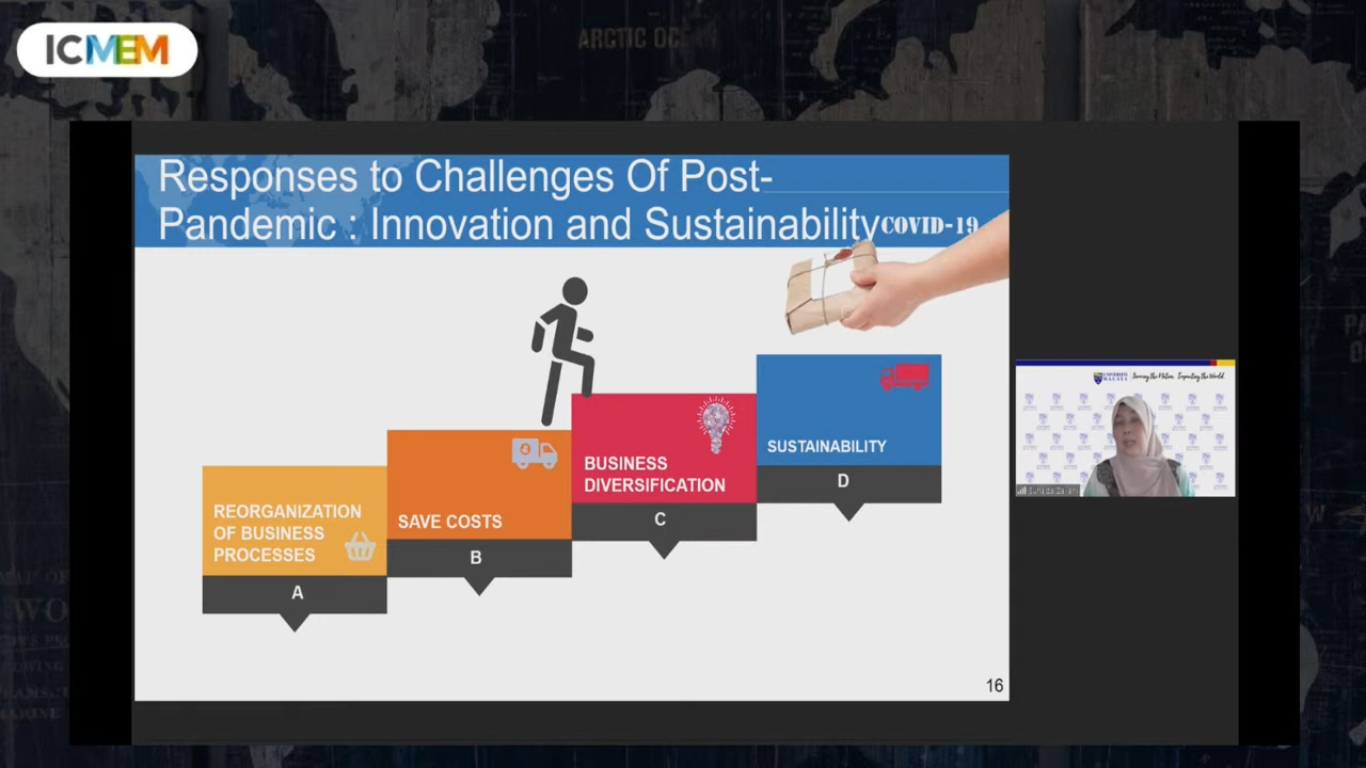 It was discussed through a panel discussion in the 6th International Conference on Management in Emerging Market (ICMEM) 2021. Prof.Dr.Suhaiza Zailani, from the University of Malaya, revealed several post-pandemic challenges that companies will face, namely: new business model, technological change, changing customer expectations, and sustainability issues.
It was discussed through a panel discussion in the 6th International Conference on Management in Emerging Market (ICMEM) 2021. Prof.Dr.Suhaiza Zailani, from the University of Malaya, revealed several post-pandemic challenges that companies will face, namely: new business model, technological change, changing customer expectations, and sustainability issues.
Through her presentation entitled “Post-pandemic: the impact of technology on the supply chain”, Suhaiza proposed several strategies for companies to respond to the post-COVID-19 situation: reorganising business processes, making cost savings, diversifying business, and applying the concept of sustainability.
Suhaiza also mentioned the critical roles of innovation and collaboration in the supply chain of companies. “ Supply chain innovation will be essential, and collaboration along the value chain will be the enabler for future business,” she said on Wednesday (11/08/2021).
Furthermore, due to our restricted activities during the pandemic, digitalisation is a must for a company to sustain itself in this circumstance. Suhaiza explained that COVID-19 managed to change corporate mindset toward digitalisation in Malaysia where previously it was failed. Digital technology brings better connectivity and as a tool to enable new ways of working. “Companies are upgrading their technology and system and ensuring employees can connect,” suggested Suhaiza.
Digital economy
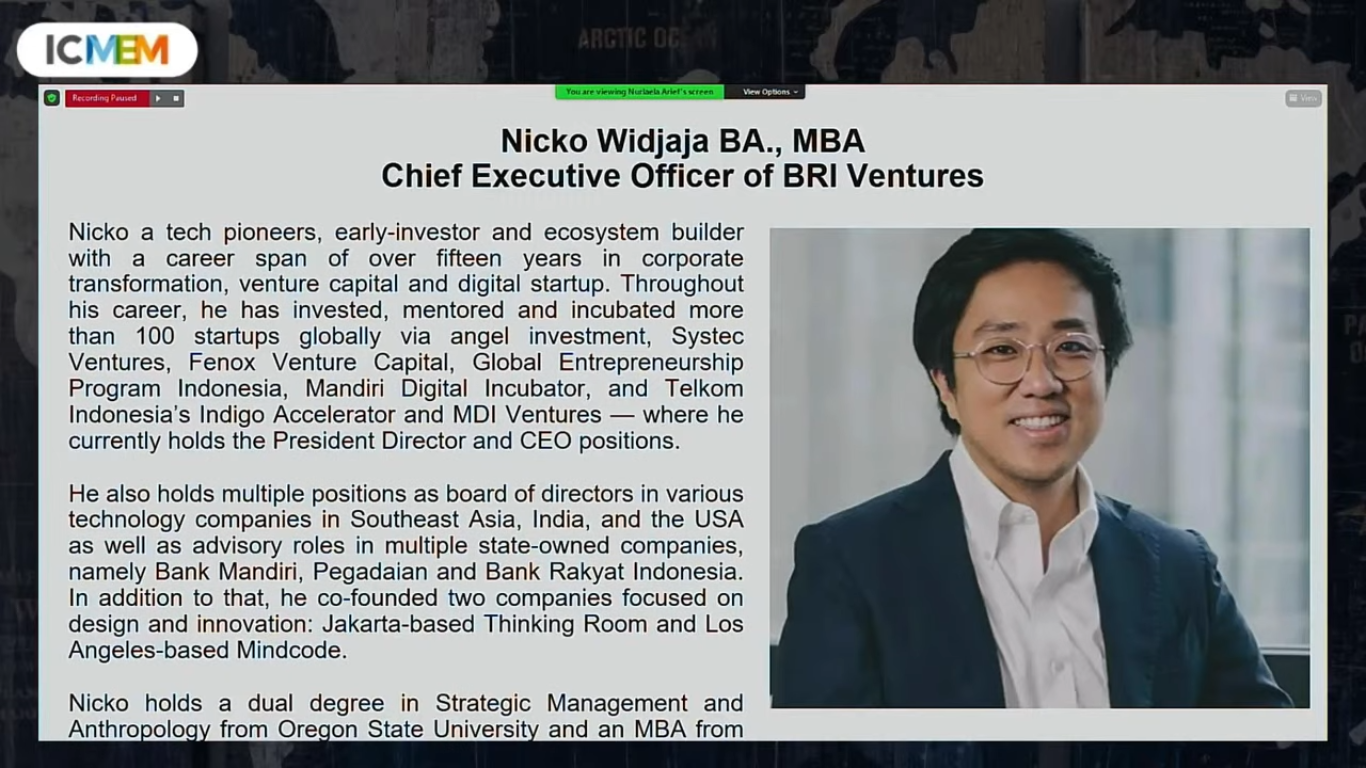
This economic potential will bring an advantage for tech startup companies that have utilised digital technology. For example, eCommerce benefits from the online shopping habits of the customers during the lockdown/PPKM. In addition, home delivery habits can boost food delivery aggregators.
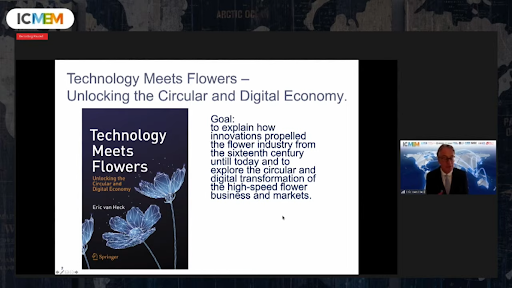
This panel discussion was moderated by Dr.N. Nurlaela Arief, from the School of Business and Management (SBM)-ITB. The discussion was closed by a question and answer session.




